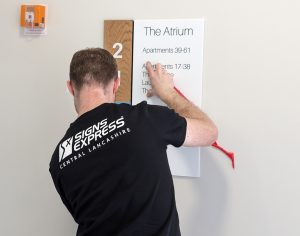As a boss, should you be friends with your employees or avoid it at all costs? I believe there’s no hard and fast rule: it depends on your organisation’s culture, the industry you’re in, the size of your team and your personality. I like to make friends and while I’m not going to invite everyone I work with to my wedding or have them round for a dinner party, I need to feel that I could happily go for a drink with everyone who works within our organisation. I certainly don’t try to alienate myself from the team and there’s a culture of family and friendship between all of us at Little Voices. I wear my heart on my sleeves and I have to be true to myself.”
But whether you choose to get close to your staff or keep a distance, you have to command respect. As the boss I lead by example and it’s a case of “do as I do” and not “do as I say”, which people respect me for. I also I make sure the boundaries between me and my team are crystal clear. This means that while I do regard them as friends and take an active interest in their personal lives, they still respect me as a leader when it comes to the crunch. This approach might not suit all franchisors but it seems to have worked for me so far.
Respect goes both ways too: as a boss, you have to believe in treating everyone fairly and equally. I try to listen with respect and give my colleagues my full attention, just as I would when speaking to a friend. Exhibiting empathy and sensitivity is what really builds trust in an organisation. Of course there are occasions when you need to pull employees you’re friendly with up for something. I try to do this in as informal and as friendly a way as possible. It is possible to handle these situations professionally if you choose your words and delivery style carefully.
Often the way you communicate with your staff is, or should be, similar to how you speak to a friend. For example, when you want someone to do something, it’s always better to give an explanation rather than just the instruction. I wouldn’t dream of ruling with a managerial stick and say ‘I’m the boss, so listen to me or else’. Listening to your staff, understanding their point of view before jumping to conclusions and keeping their confidence are also important.
That being said, you can’t be all things to all people. I had to accept very quickly that not everyone was going to be my best friend and some people wouldn’t like me. Once I accepted this, I handled everything differently. I’ve learned to take a step back, take a deep breath and remove myself from being personally affected. This can be challenging: I can often be found reminding myself of the saying “you can’t control or change how people react to you: you can only change your reaction to them”.
My approach to being friendly with my staff and creating a warm culture invariably affects the way I recruit people. I often rely on gut instinct when assessing candidates and a question I often ask myself is: ‘could I be friends with them?’ So far this approach has worked well and, luckily, I genuinely like every franchisee and employee in the Little Voices network and could happily go for a post-work drink with them, which says a lot.
It all comes down to the culture of the organisation and the nature of the industry. Our company is people-orientated and our franchisees need to have a friendly disposition, so it’s natural that we’re friendly towards each other. Having close workplace relationships makes coming into the office every day more pleasurable. Just make sure that you put boundaries in place so people know what you will and won’t tolerate. If you stay professional, there’s nothing stopping you from making friends with your team.

Jane Maudsley
Maudsley is founder and managing director of Little Voices, a national performing arts organisation that nurtures talent and builds confidence through drama and singing; it's something she knows a lot about as a former opera singer. Out of the office, Maudsley enjoys being mother to her young daughter, walking, running, cooking, learning and reading.

Jane Maudsley
Maudsley is founder and managing director of Little Voices, a national performing arts organisation that nurtures talent and builds confidence through drama and singing; it's something she knows a lot about as a former opera singer. Out of the office, Maudsley enjoys being mother to her young daughter, walking, running, cooking, learning and reading.
































